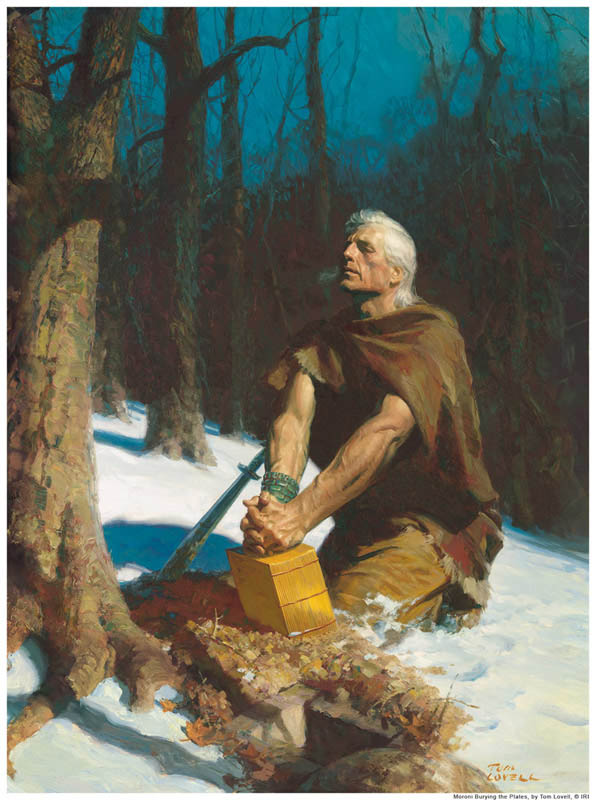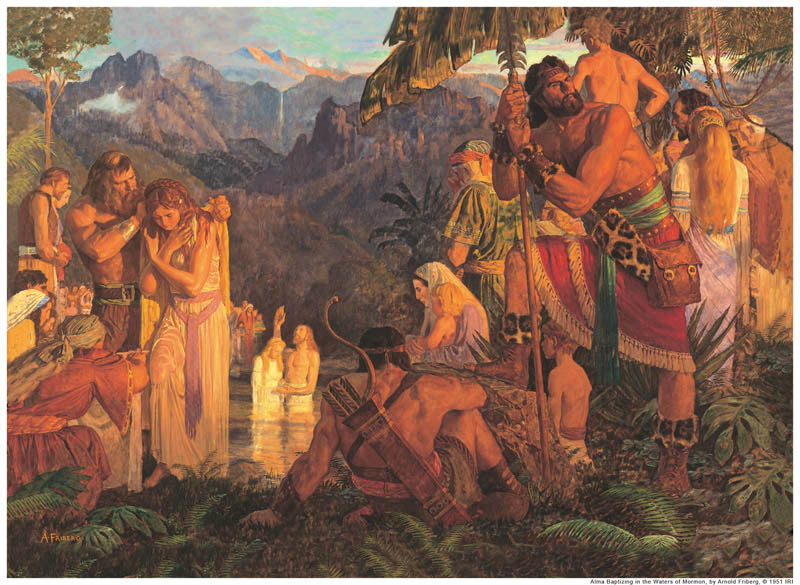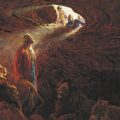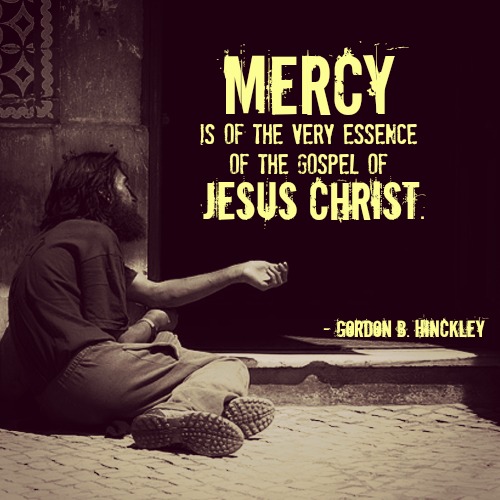When times are hard, the scriptures are a great place to turn for moral support and good attitude role modeling. Not only can you find people who are facing much greater trials than your own, but you can see how they coped with those trials. While they sometimes briefly faltered, they always rallied and learned how to face their trials with faith and gratitude.
Think of Nephi, who went from wealthy to homeless and who spent his life dodging being murdered by his brothers. In his later years, he would write that he had been blessed every day of his life. Think of Noah, being mocked for preaching about a flood. Think of the prophets in the Bible who faced death for doing what God asked of them.
My personal favorite hero in times of trial is Moroni, whose writings are found in the Book of Mormon. There are two men named Moroni, but in this article, we’re discussing the one who was the final author. If you’ve ever visited or seen pictures of a Mormon temple, you’ll see him as an angel with a horn, proclaiming the restoration of the gospel of Jesus Christ. In the Book of Mormon, however, we see him during his mortal life.
Moroni’s childhood was one of great trial and stress. Although we don’t know much about it, we do know that by the time he was a teenager, his people, the Nephites (descendents of the Nephi mentioned earlier) had largely turned away from God and His teachings. Throughout the centuries, God had promised the prophets that as long as the Nephites remained righteous, they would be protected from destruction by the Lamanites (descendents of Nephi’s murderous brothers.) However, should they turn away, those protections would be taken. That time had come.
The Nephites engaged in a terrible battle against the Lamanites and lost. Tremendous numbers were killed. Only a small number was left and Moroni’s father, the prophet, spent many hours seeking out the survivors and trying to help them. Those who survived had to hide or risk certain death from their enemies. By the time we meet Moroni, all of his family was dead except his father, who would also soon die. Imagine being a teenager and watching all your friends and family die over a short period of time. There was no normal teenage fun for Moroni. He was fighting the wars and caring for the survivors. Experts believe he was only a teenager when his father died.
“ Behold I, Moroni, do finish the record of my father, Mormon. Behold, I have but few things to write, which things I have been commanded by my father.
And now it came to pass that after the great and tremendous battle at Cumorah, behold, the Nephites who had escaped into the country southward were hunted by the Lamanites, until they were all destroyed. And my father also was killed by them, and I even remain alone to write the sad tale of the destruction of my people. But behold, they are gone, and I fulfil the commandment of my father. And whether they will slay me, I know not. Therefore I will write and hide up the records in the earth; and whither I go it mattereth not.
Behold, my father hath made this record, and he hath written the intent thereof. And behold, I would write it also if I had room upon the plates, but I have not; and ore I have none, for I am alone. My father hath been slain in battle, and all my kinsfolk, and I have not friends nor whither to go; and how long the Lord will suffer that I may live I know not.”
In ancient times, a person’s world was very small. In Moroni’s own world, he was the last remaining good person. Everyone around him—everyone—was evil. Imagine the teenagers you know hiding away in a cave somewhere, surrounded by pure evil, with everyone in your personal world determined to murder you. He has no parental guidance, no friends, no mentors, just himself and his faith in God to get him through. We learn he was occasionally visited by angels who helped to care for him when he needed it, but between angelic ministering, he was utterly alone.
The words Moroni wrote demonstrate his intense loneliness and grief. ”For I am alone. My father hath been slain in battle, and all my kinsfolk, and I have not friends nor wither to go; and how long the Lord will suffer that I may live I know not.”
He wrote that it did not matter to him where he went when he finished his assignment from his father and His God. It was, most likely, for this purpose—to finish and hide the records—that he was kept alive. The records were those of his people going all the way back to 600 B.C. It was now somewhere between 400 and 421 A.D. Moroni’s father had been engaged in the overwhelming task of taking centuries of records and reducing them to only those that mattered most, so they could be buried and preserved for those for whom they had been written.
The Bible was written by a variety of people and existed in an uncollected form until long after Jesus died, when church leaders began collecting the records and choosing which ones they wanted to include.
The Book of Mormon, however, was written by the prophets and handed down, making a complete record. Mormon and Moroni only condensed the records into a more concise form.
Once the record was finished, Moroni buried it in the Hill Cumorah and left. However, years later he found, to his great surprise, he was still alive. He came back to Cumorah, but since he was still being hunted down, he had to do so secretly. He dug out the record and added more information to it. Finally, he buried it one last time and left. We don’t know what happened to him after that during his own lifetime.
Later, as an angel, he returned to show Joseph Smith where the plates were hidden and to begin tutoring him in the things he needed to know in order to participate in the restoration of the gospel. It’s fitting that Moroni was given this honor, since his heroic sacrifices made it possible.
What do I learn from Moroni? Often, our trials are caused by the choices of others. We can’t control their choices. We can only control ourselves. Moroni’s people caused the destruction when they turned away from God. Moroni never turned away, but he still suffered the results. He lost everyone he loved. He couldn’t change that, either. However, he was able to control his own choices about how to respond to the trials. In his record, we don’t see anger or blame. We see a teenager struggling to honor God’s plan for him the very best he can, with courage and faith. When I face a trial, Moroni is my favorite Book of Mormon person to turn to.
About Terrie Lynn Bittner
The late Terrie Lynn Bittner—beloved wife, mother, grandmother, and friend—was the author of two homeschooling books and numerous articles, including several that appeared in Latter-day Saint magazines. She became a member of the Church at the age of 17 and began sharing her faith online in 1992.








Trackbacks/Pingbacks